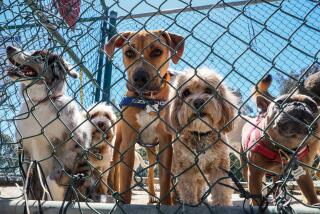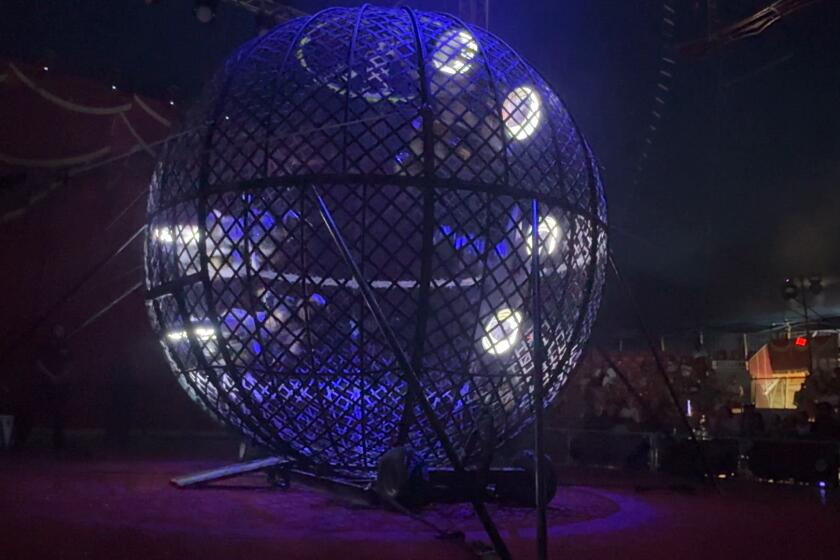Fluffy and Fido can stay: Early exposure to pets may not increase allergy risk for kids
Exposing children to dogs and cats might not increase the kids’ risk of developing allergies to them, a study finds.
Many parents nix the idea of getting a pet when their children are young for fear of kicking off an allergic response. But researchers found that having a dog or cat in the house may provide a protective effect.
The study, released Monday in the journal Clinical & Experimental Allergy, included 565 children who were followed from birth until age 18. Particular interest was paid to pet exposure in the first year of life, and at other stages throughout childhood and adolescence. They also looked at the total number of years in which children lived with a pet that stayed indoors at least half the day. Other factors included the parents’ history of allergies and if the child was delivered via C-section or vaginally.
Being exposed to a pet the first year proved critical. Boys who lived with an indoor dog during the first year of their life had about half the risk of being sensitized (having an immune response) to that pet versus those who were dog-less that first year.
Teen study participants who lived with a dog the first year of life and were delivered via C-section were much less likely to be sensitized to dogs than teens who were born vaginally. In the study they speculated that children born via C-section could obtain more microbes from what they’re exposed to around the house, such as dust, than children born vaginally.
Teens who had an indoor cat during year one also had their chances of being sensitized to the animals cut in half, compared with those who didn’t have a cat the first year.
“This research provides further evidence that experiences in the first year of life are associated with health status later in life, and that early life pet exposure does not put most children at risk of being sensitized to these animals later in life,” said lead author Ganesa Wegienka of Henry Ford Hospital in a news release.
More to Read
Sign up for The Wild
We’ll help you find the best places to hike, bike and run, as well as the perfect silent spots for meditation and yoga.
You may occasionally receive promotional content from the Los Angeles Times.










